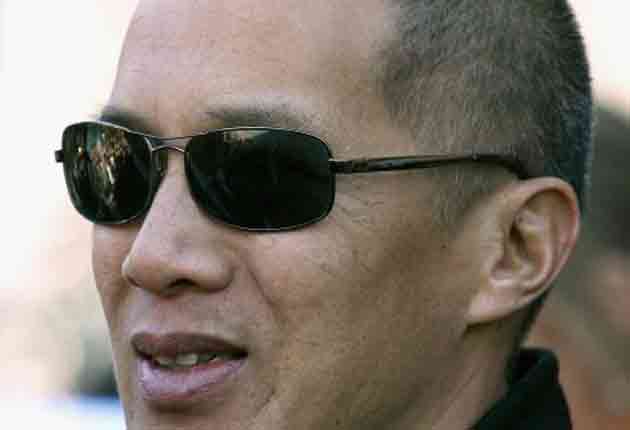Brain surgeon defends sale of 'theatre tickets'

Your support helps us to tell the story
From reproductive rights to climate change to Big Tech, The Independent is on the ground when the story is developing. Whether it's investigating the financials of Elon Musk's pro-Trump PAC or producing our latest documentary, 'The A Word', which shines a light on the American women fighting for reproductive rights, we know how important it is to parse out the facts from the messaging.
At such a critical moment in US history, we need reporters on the ground. Your donation allows us to keep sending journalists to speak to both sides of the story.
The Independent is trusted by Americans across the entire political spectrum. And unlike many other quality news outlets, we choose not to lock Americans out of our reporting and analysis with paywalls. We believe quality journalism should be available to everyone, paid for by those who can afford it.
Your support makes all the difference.Charlie Teo is not your regular brain surgeon.
He rides a motorbike, wears Hawaiian shirts and listens to Abba while removing brain tumours. But even colleagues accustomed to his maverick ways are unamused by the latest revelation: he auctions off ringside seats in his operating theatre.
A flamboyant character wont to ruffle the medical establishment's feathers, Dr Teo admitted yesterday that he raised money for childhood cancer research by offering a day in his company several times a year. Winning bidders get to witness his surgical skills first-hand, watching on a screen inside the theatre at a major Sydney teaching hospital.
The practice came to light after a public health professor at the University of Sydney, Simon Chapman, attended a charity function last October at which one such auction was held. He then wrote a highly critical piece for the current issue of the British Medical Journal, headlined: "Should the spectacle of surgery be sold to the highest bidder?"
Professor Chapman argued that vulnerable patients might feel unable to refuse Dr Teo's request, while patient confidentiality might be compromised. "What guarantees are there that a winning bidder would not pass on full descriptions of what they saw to enthralled dinner party guests?" he wrote. "What if interesting biographical details slipped out?"
Dr Teo, whose hobbies include playing the bagpipes, said yesterday that viewings took place under strict hospital protocols that kept spectators well away from patients. The former – often students contemplating a medical career – watched the surgery on a video screen in the corner of the theatre.
While he understood the ethical arguments, his motive was to raise awareness about cancer, he told ABC radio. "The reason I do it is for the greater good of the community, to try to tell people brain cancer is not just a name or a disease. This personal experience allows people to see that cancer affects you and me."
However, John Quinn, the executive director of surgical affairs at the Royal Australasian College of Surgeons, said college authorities would examine whether Dr Teo had breached its code of conduct.
Dr Quinn warned that non-medical audiences could spread infection, and doctors and nurses might behave differently when watched. "Surgery is not a spectator sport," he said. "It's really quite a serious activity, and often a life-or-death situation, and viewing live surgery is not regarded as appropriate behaviour."
He noted that the glass-fronted viewing areas which used to be common in operating theatres had been removed because of increasing awareness of the issues of privacy and informed consent.
Dr Teo, made a member of the Order of Australia this week for his services to medicine, has attracted controversy for his habit of forming close friendships with patients. Some colleagues have also accused him of giving false hope to patients widely regarded as inoperable.
In an interview, Dr Teo said that while he might only be delaying death in such cases, "if they have quality of life then...you're prolonging their life".
Join our commenting forum
Join thought-provoking conversations, follow other Independent readers and see their replies
Comments